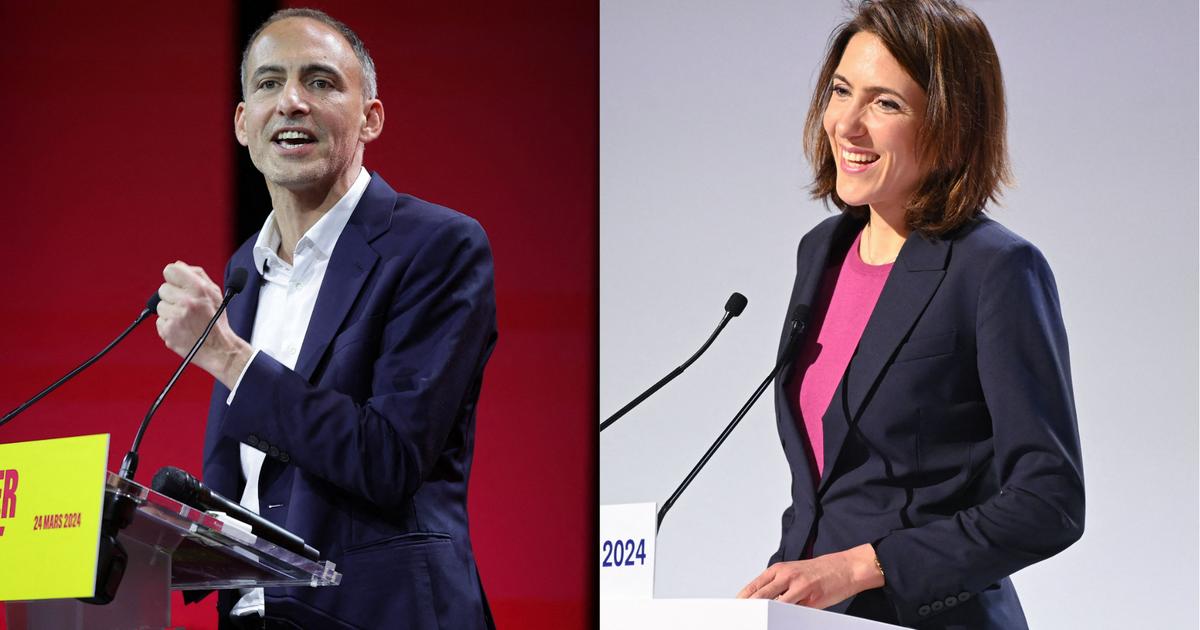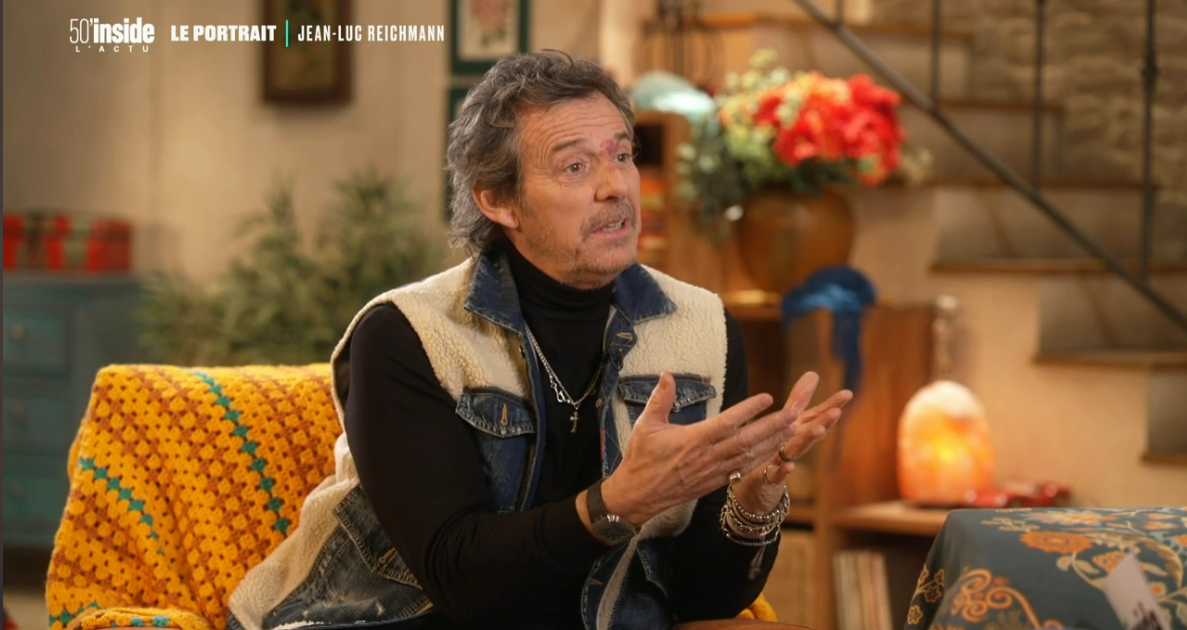Jean-Luc Godard chose when and how to die.
The moment: Tuesday, September 13 in the morning.
The place: his house in Rolle (Switzerland), the town of 5,000 inhabitants on the shores of Lake Leman where he had lived for decades, and which he himself filmed in some of his works.
The method: by assisted suicide, authorized by Swiss law.
More information
The best films of Jean-Luc Godard
Godard, figure of the
nouvelle vague
and revolutionary of the seventh art, is possibly the most famous person known to have ended his days in this way.
He died "surrounded by his relatives" and "peacefully", wrote the
Libération
newspaper citing his partner, Anne-Marie Miéville, and his producers.
An acquaintance declared to the same newspaper that he "was not sick, he was simply exhausted."
Patrick Jeanneret, a friend of his, clarified in statements collected by the Swiss public channel RTS that the filmmaker suffered from "multiple disabling pathologies".
The filmmaker's entourage also explained to the media that he would have preferred the news to be known a few days later to live the day "serenely", but it ended up being leaked.
No further details of the final scene have emerged, although it is easy to figure out how it could have happened: the procedure is usually always similar and has been truthfully portrayed in films such as
Everything went well
, by François Ozon (2021), or in documentaries such as
The election by Jean
, by Stéphanie Malphettes and Stephan Villeneuve (2005).
The person who wishes to die is picked up at his or her home or in another residence in the presence of at least one companion from an association that helps a dignified death and a witness or, more usually, a family member or friend (or several).
He takes himself – this is capital: no one can do it for him, it is not euthanasia – a bottle with the lethal potion, or he activates the injection himself.
Turns off.
Once dead, the member of the association calls the police and the doctor who certifies the death.
“I have helped some people,” explains Jean-Jacques Bise, co-president of Exit Suisse Romande, the French-speaking Swiss association that helped Godard die, and that, in 2021 alone, also assisted 421 more people.
"It always takes place in great serenity," describes Bise, who specifies that he does not know the details of the filmmaker's death and that, even if he knew them, he could not reveal them.
Godard had been thinking about the possibility of assisted suicide for some time.
In an interview with RTS in 2014, the journalist started a question by saying: "When you die, as late as possible...".
The filmmaker interrupted him: "No, as late as possible, no."
And he added: “Follow by force is not what I want most.
If I'm too sick, I don't feel like being dragged around in a wheelbarrow."
When the journalist asked him if he thought about assisted suicide, he replied: "Yes."
But he alluded to the possible legal difficulties to resort to this death if one does not suffer from illnesses.
“I often ask my doctor and my lawyer: 'If I come to ask you for
barbiturate
[sic]
or whatever it's called [pentobarbital], or morphine, will you give it to me?'
I still don't have a favorable answer."
Suicide as an artistic engine
Suicide is one of the themes of Godard's work and life.
The American critic Richard Brody, in his essay
Everything is cinema.
The Working Life of Jean-Luc Godard
, tells that, in the fifties, one of the first films that he wanted to make, and did not succeed, was an adaptation of
The Myth of Sisyphus
by Albert Camus, which begins with the famous phrase: "The only serious philosophical problem is suicide."
In his biography of Godard, Antoine de Baecque recounts that once, around the same time, fellow filmmaker Éric Rohmer found him in a studio where he was living “bathed in blood after an attempted suicide over a love affair that ended wrong".
Already consecrated, and during his marriage to the actress Anna Karina in the sixties, he suffered several depressive crises and once, writes De Baecque, "he cut his wrists, but the suicide attempt was not to the end: he does not want to die, he wants suffer".
The biographer records another attempt at the end of that decade, when he was married to actress Anne Wiazemnsky, this time with barbiturates, "and then he tried to jump out the window."
The elder Godard lived in Switzerland, one of the countries with the most permissible legislation for assisted suicide.
Article 115 of the Penal Code of 1937 allows it, and it is on this basis that, for twenty years, the practice has spread.
The Swiss lawyer Yves Grandjean, a specialist in the matter, explains it: “The Criminal Code speaks of assisting suicide saying that it is not punishable under two conditions.
The first is that there is no selfish motive on the part of the person helping.
To summarize: hand over the rope with your right hand and grab the will with the hot ink with your left.
The second is the capacity of discernment of the person who wishes to leave.
Dangerous drugs will not be given to a deeply depressed person.”
The complication comes when it comes to determining who can take advantage of assisted suicide without the families or associations running a legal risk.
How sick do you have to be?
That is why the title of the information on Libération
has created debate
: "He wasn't sick, he was just exhausted."
Flowers at the front door of Jean-Luc Godard's house in Rolle, Switzerland. FABRICE COFFRINI (AFP)
"This title is false," replies Jean-Jacques Bise of Exit.
“Associations in Switzerland that help someone die always do so with people who submit a medical report.
They can be people who live with great suffering because they have a terminal illness, or elderly people with what are called invalidating poly-pathologies, and they suffer so much that, due to their quality of life, they do not want to continue living”.
Godard inevitably had to submit a medical report.
In this case, Bise specifies, it could have happened that the report showed, "among other things", that this person was exhausted.
Lawyer Grandjean points out: “I have no information on the case, I am a fan of Godard and nothing more, but I can assume that, given his advanced age, it was not difficult for a doctor to align a certain number of pathologies that, deep down, will make that no one will bother you for this.”
On the RTS network, Patrick Jeanneret, a friend of Godard, explained that "[the filmmaker's] body was tired, it didn't go on anymore."
"He could not live normally due to various pathologies," he added.
"And I think that for a man who was so independent, so upright, it was a major obstacle not being able to have his physical abilities like everyone else."
Swiss filmmaker Lionel Baier told La Tribune de Genève: “I had known for a few days that he was not well.
But he was still working a little bit on his upcoming projects for a few hours a day.”
Godard's death has coincided in France with the publication of a long-awaited opinion of the National Ethics Advisory Committee on “end-of-life situations”.
The only gesture of the filmmaker has thus acquired a political content: few figures of his stature had made it public.
Which doesn't mean there aren't others who keep it private.
"We have helped other well-known people," says Exit's Bise, "but we haven't said so."









